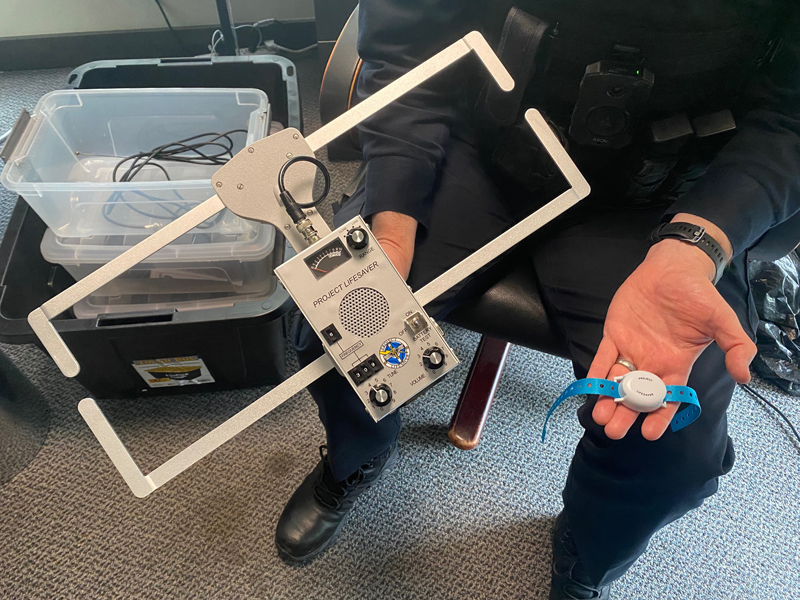Project Lifesaver to aid missing residents with cognitive disorders in Pleasant Hill

PLEASANT HILL, CA (April 26, 2023) — Unique challenges accompany the aging process, and the Pleasant Hill Police Department is introducing Project Lifesaver to intercede quickly when problems arise.
The proactive program is designed to rapidly locate individuals with cognitive disorders, such as dementia or an autism spectrum disorder, and who are prone to the life-threatening behavior of wandering.
Working in conjunction with Pleasant Hill Park and Rec, police representatives have scheduled a presentation at 1 p.m. May 23 to explain the program and gauge interest in the initial target audience, according to Officer Nicholas Filippini, who heads up the Project Lifesaver team. The meeting will be in the Chateau Room of the Pleasant Hill Senior Center, 233 Gregory Lane.
Citizens enrolled in the program will wear a small transmitter on the wrist or ankle that emits an individualized frequency signal. For the program to be successful, the person wearing the device will have a caregiver who would contact the department to report that the individual has gone missing. Filippini said it might be a situation of a husband and wife, where one has Alzheimer’s, for example.
Lifeline
Trained officers will use the client’s individualized frequency code to locate the position of the individual. The department will take three transmitters to where the person was last seen, and the code will triangulate the location of the individual. The louder the beep that is emitted, the closer trained search and rescue teams are to the individual’s position, Filippini said.
Time is critical and the code must be entered within 30 minutes, or using the transmitters to pinpoint the individual’s whereabouts becomes very difficult.
Adults who are not senior citizens but have conditions that put them at risk of wandering are also eligible to participate in the program, if devices are available.
The city of Pleasant Hill is funding the program to the tune of about $6,000 to cover the cost of three transmitters at $1,100 apiece and five receivers costing $325 each.
There will not be a charge to the five initial clients, who will get a receiver and battery charger as part of the kit. Depending on the response to the program, Filippini said they may have to revisit the issue of charging a fee for future enrollees.
“We haven’t really seen a recent increase in these calls. (But) we are always looking for new tools that will help us do our jobs better and make a positive impact in the community,” said Filipinni. “This is the main motivation.”

David Scholz
David Scholz is back in journalism as a freelance writer and photographer after nearly two decades in education. Prior to moving into teaching in 2000, he worked as a full-time journalist since 1988 for rural community and small daily newspapers in Central Ohio and Northern Nevada, and later in California with The Business Journal in Fresno and dailies in the Bay Area, including The Oakland Tribune and The San Francisco Chronicle. More recently Scholz also worked in an editing, writing, and page layout role with the Rossmoor News.
